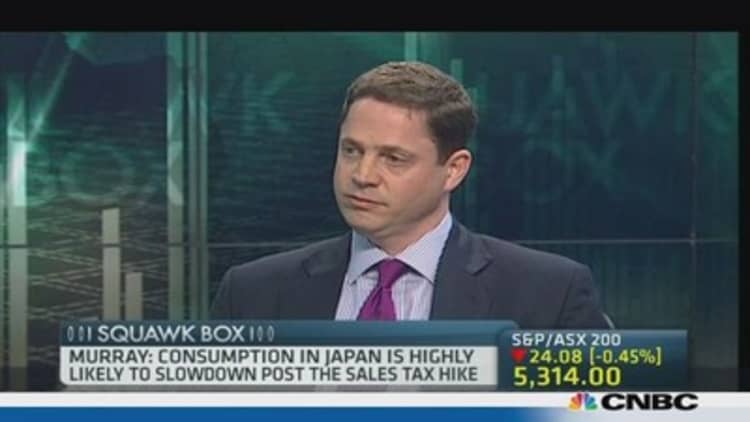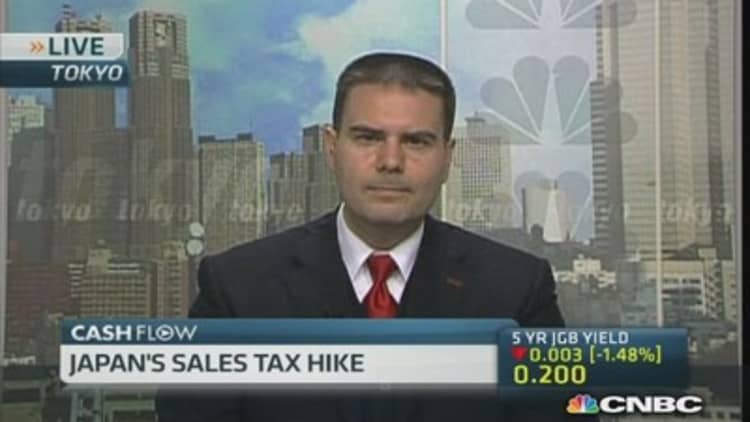Japan's sales tax hike isn't just spurring concerns that its domestic economy may slow, some analysts worry the malaise may spread to other countries in the region.
Front-loading of spending by Japanese households to beat the consumption tax hike to 8 percent from 5 percent on April 1 "may have contributed to the healthy export performance of some of the non-Japan Asian (NJA) countries recently," Credit Suisse said in a note, adding the main spending beneficiaries were likely in the clothing, automobile and home electronics segments.
Read More Will Japan's tax hike spur a fiscal crisis?
Economists widely expect Japan's household spending, as well as economic growth, will drop off in the wake of the tax hike, although forecasts vary widely.
"We expect economies that export a significant amount of discretionary consumer as well as transport and machinery products to Japan to be more vulnerable to the negative household spending shock," Credit Suisse said.

Exports from the Philippines and Thailand appear the most vulnerable to the likely downturn in Japanese household spending as a significant share of electronics and machinery products from these countries are used for domestic consumption and not for re-export, it said.
"Shipments to Japan represent a significant share of total exports from these two economies," it said, noting around 10 percent of Thailand's and 21 percent of the Philippines' merchandise exports go to Japan.
The Philippines' February exports climbed 24.4 percent on-year after rising 9 percent on-year in January, touching their highest level on a seasonally adjusted basis since the country first began compiling data in 1979, according to Credit Suisse estimates.
Read MoreAbenomics speeds corporate investment, but not in Japan
The archipelago's exports to Japan rose 67 percent on-year in February, after climbing 50 percent in January, it noted, adding the potential for a pullback in the second quarter was significant.
"A significant proportion of exports to Japan from Thailand and the Philippines are products whose demand is particularly price sensitive, such as textiles, transport and electrical equipment, it said.
Credit Suisse estimates the tax hike will drag the two countries' economic growth by a relatively small around 20 basis points each for the year, as the first-quarter front-loading boost will help offset the hit to second and third quarter export and economic growth.
Read More Could emerging markets pay the price if Abenomics fails?

To be sure, not everyone expects the tax hike will have a huge impact on regional growth.
"It's not clear these economies will be hurt all that much because of the tax hike," Frederic Neumann, an economist at HSBC, said.
"There's bound to be some impact on growth for both of these markets, but we think it will be temporary," with Japan's economy set to reaccelerate in about three months, he added. "Japan will come through the tax hike in good shape."
Read More Thai unrest casts doubt on investment expansions
In addition, he noted that both Thailand and the Philippines have been benefiting from Japanese foreign direct investment, which has picked up since the Bank of Japan embarked on its easing program around a year ago.
In 2013, Japanese investment in Asia rose around 20 percent, according to the Japan External Trade Organization, or Jetro, with direct investment in Southeast Asia more than doubling. Thailand, Southeast Asia's biggest car market, gets more than half its foreign direct investment from Japan.
—By CNBC.Com's Leslie Shaffer; Follow her on Twitter @LeslieShaffer1

